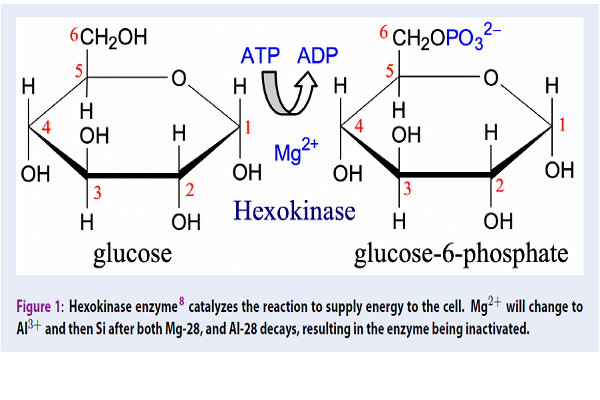A proposition for a cancer treatment study using radioactive metal co-factor enzymes
DOI:
https://doi.org/10.15419/bmrat.v6i2.519Keywords:
beta decay, electron capture, Enzyme, M*-enzyme, M-enzyme, metal cofactorenzyme, nuclear recoil, nuclear transformation, radioisotope-enzymeAbstract
Cancer is a serious pathological condition of abnormal cells are gathered in tumors in the body's tissues or organs. Due to their accelerated metabolism, cancer cells require a great demand for energy, protein (cell structure substrates), and metabolic enzyme activity. If the body does not respond adequately to this demand, the metabolic processes of cancer cells will be hampered, and their growth will be limited or even stopped. It is possible to control the metabolic processes of the cancerous tumors by performing one or more of the following approaches: stopping the energy and cell structure substrate supply, inhibiting enzymic activity, and/or destroying cancer cells with external agents (such as radiation and/or chemicals). These approaches have been investigated either in single or combination modes, but so far the results obtained have not been on par with expectations. In this paper, we propose a method of cancer treatment which entails the use of a radioisotope instead of stable metal to break down the structure of metal co-factor enzyme and to deactivate its catalytic function. With a judicious choice of the metal radioisotope, this method is even able to perform all the above-mentioned approaches, and at the same time, giving a much better efficacy in cancer treatment.

Downloads
Published
Issue
Section
License
Copyright The Author(s) 2017. This article is published with open access by BioMedPress. This article is distributed under the terms of the Creative Commons Attribution License (CC-BY 4.0) which permits any use, distribution, and reproduction in any medium, provided the original author(s) and the source are credited.
